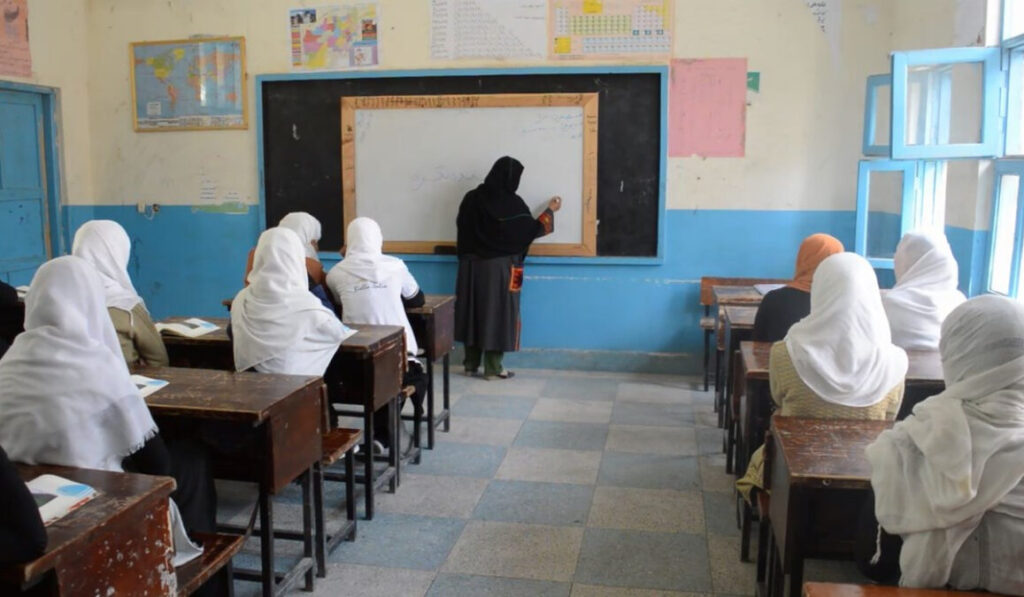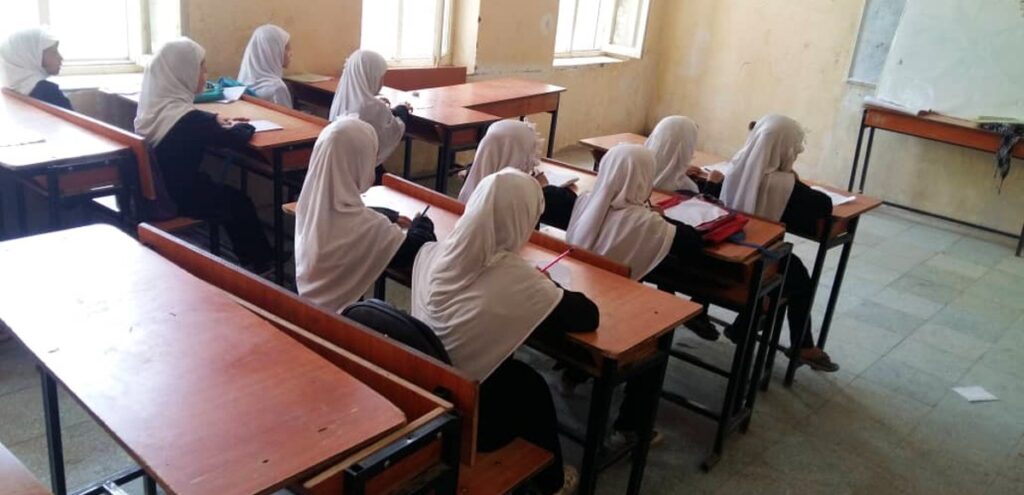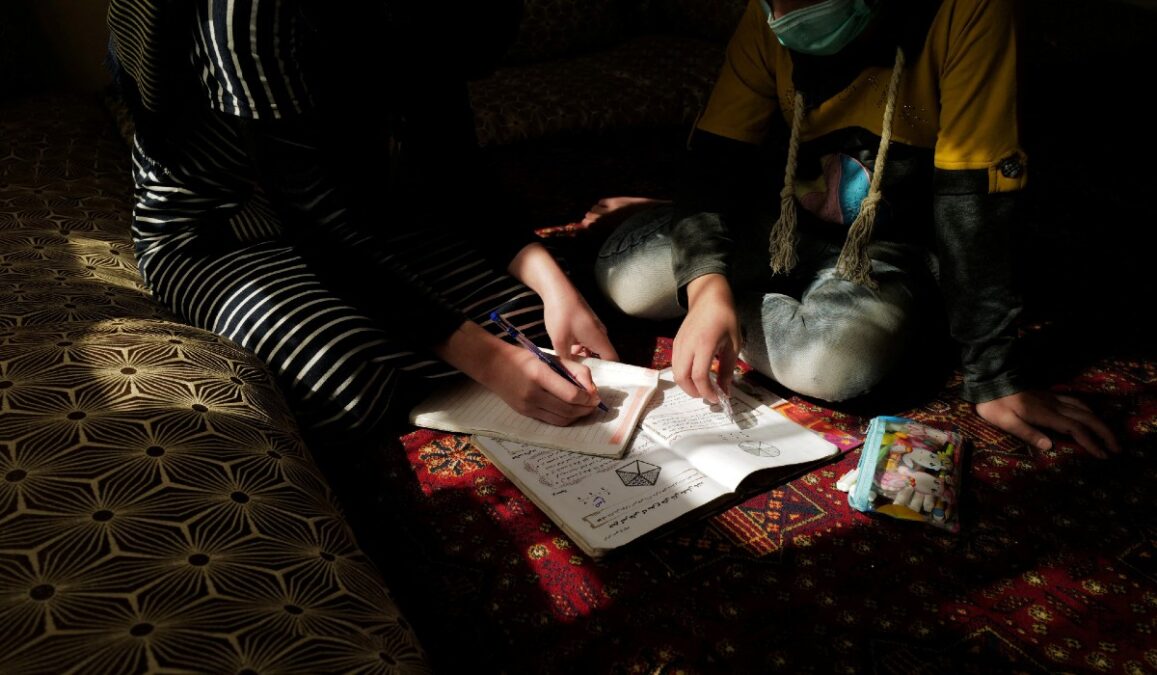As schools across Afghanistan prepare for the new academic year next week, girls above Grade 6 must be allowed to return to school after an 18-month ban on their education, Save the Children said on Thursday.
According to a statement released by the organization, the failure by the Taliban to reverse this ban will “drive up child marriage, exclude half of the future generations from the workforce and entrench families further into poverty, having a profoundly damaging impact on the country’s future.”
Eighteen months ago the Taliban enforced a ban on girls above Grade 6 from attending school. This affects more than three million girls in the country who were previously enrolled in secondary school.
Since then, an increasing number of reports have indicated that girls are being forced into child marriages, which is proving to be of major concern to rights organizations around the world.
The Taliban have however repeatedly said the move was only ‘until further notice’ yet nothing has so far been done to reverse the ban.
Save the Children said it is calling for the ban to be lifted immediately and for girls to have full access to education when schools return on March 21.
The organization’s acting country director for Afghanistan, Olivier Franchi, said Afghan girls are striving for a better future despite Afghanistan being the only country in the world that has banned high school girls from getting an education.

He said the girls “know the best path to success is through school. When their education is cut short, they face an increased risk of early marriage, violence, abuse and other forms of exploitation.
“Every day that girls are out of school is a wasted day – not only for them, but also for communities in desperate need of skilled doctors and teachers, and for the long-term economic development of the entire country,” Farahi said. “It is critical that girls are not left behind when schools reopen. We urge the Taliban to allow girls to return to school without further delays.”
Girls speak out
Aaisha, who is 16, told the organization that she is desperate to continue her studies when she graduates from a sixth-grade community-based education class run by Save the Children in central Afghanistan.
She said: “Sixth grade is nothing for us – we want to continue to high school. If we only graduate from sixth grade, we can’t do anything. We can’t get a job, we can’t go to university.”
When asked about her aspirations for the future, Aaisha said: “My first wish for the future is that girls are supported to go to high school. And the second wish is that girls are supported to go to university and complete [their] education.”

Her mother, Khadija, 37, has four daughters all at the same Community Based Education Centre, including Aaisha, and they are all about to have their education cut short.
Khadija said: “I’m uneducated and I can’t even read a road sign to know where I am, but I want my daughters to be able to do that.”
“If there are no opportunities for higher education, we need to marry our daughters at a younger age because it is not safe for them in the community. My future is not good, but I want my daughters to have a good future,” the mother said.
Repressive restrictions
Marking International Women’s Day on March 8, last week, the United Nations said Afghanistan under the Taliban rule is the “most repressive country in the world” for women’s rights, with authorities effectively trapping women and girls in their homes.
Roza Otunbayeva, head of the UN mission in Afghanistan, said in a statement: “It has been distressing to witness their methodical, deliberate, and systematic efforts to push Afghan women and girls out of the public sphere.”
As the UN pointed out, the Taliban initially gave a shortage of teachers, lack of school infrastructure for gender segregation and other reasons for the continued closure of schools and while some senior Taliban leaders have called for schools to be reopened, nothing has been done – despite having said there was no valid reason in Islam for the ban.





